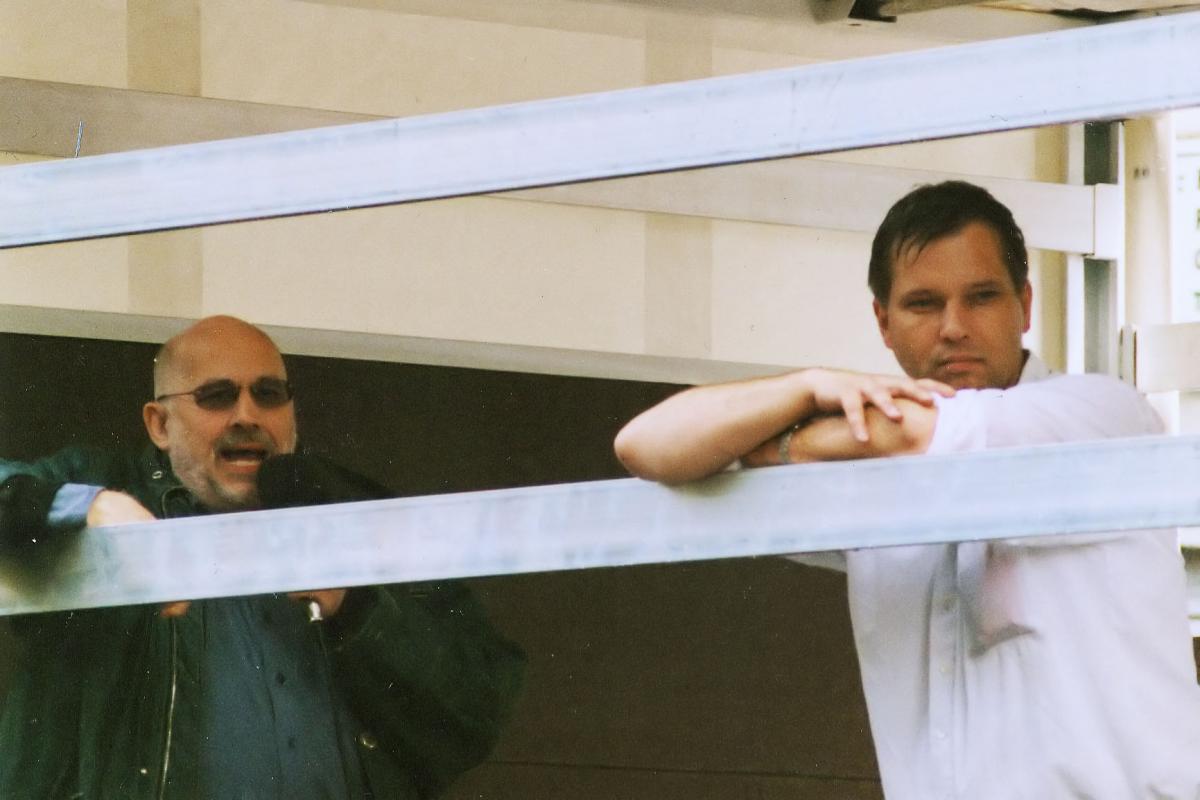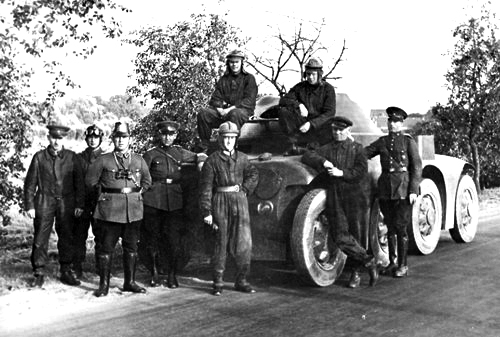
Horst Mahler's recent ludicrous (and failed) application for political asylum in Hungary – he’d fled Germany, where he was due to serve prison time for Holocaust denial – looks at first sight like nothing more than the crowning lunacy of a career which has consisted in a publicity-seeking death-ride through the extremes of politics. Mahler, now 81, rose to notoriety as a core member of Germany's murderous ultra-leftist gang, the Baader-Meinhof, but has ended up as a completely open and unapologetic Holocaust-denier and propagator of Nazi “blood and soil” ideas.
Surely, the only way we can possibly make sense of this life is to say that it has no sense at all? Mahler be just the sort of man who, one way or another, was always likely to go to prison before ending up wandering the streets with an old rucksack and plastic bags, muttering to himself about the Jews? That would be convenient, and there’s no doubt some truth in it. More worrying is the truth: that there’s a long-established bridge within German history between the "extreme right" and the "extreme left".
“The link between Mahler’s incarnations is simple: a radical hatred of the West”
National Socialism, after all, claimed pretty clearly on the tin that it was fusion of two essentially anti-liberal ideas: German nationalism and Marxian socialism. The link between Mahler’s “left” and “right” incarnations is indeed simple: a radical hatred of the West and all it allegedly stands for. And there’s nothing new at all in this, in Germany – or rather, in Prussia.
From 1807-1864, Prussia was a firm ally – indeed, in Russian eyes little more than a satrap – of Czarism, which fought tooth and claw to prevent the spread of western, liberal ideas into central and eastern Europe. Prussia’s reward was vital Russian neutrality in the so-called Wars of Unification (in fact, wars of Prussian conquest) from 1864-1870.
In 1879, eight years after Bismarck’s so-called unification, modern political anti-Westernism and anti-Semitism (the two always seem to go hand in hand) were born in Prussia. Protestant zealots for the new Prussian-German Empire had expected Bismarck to lead them to a sort of proto-modernist Promised Land, purged of aristocratic privilege and regional Catholic loyalties alike. But in 1879, he dumped them in favour of deals with Catholics and conservatives.
Their vengeful diatribes map exactly onto modern liberalphobia-cum-anti-Semitism. They claimed there was a gigantic plan, driven by a Jewish, or Jew-ish, belief that culture counted for nothing and money for everything. The cunning, decadent, shopkeeperly British Empire – led by a Jew, Disraeli! - with its Kultur-less monoculture and unstoppable language, was the natural ally and enabler of the Jews in this plot to subjugate the globe through “Manchesterism” (19th Century Germany’s exact equivalent of “Globalisation”).
What’s vital to see is that this movement was socially radical, not conservative. For as well as being anti-Semitic, Anglophobic, anti-Catholic and anti-Polish, it was anti-ruling class: one of its more memorable election slogans was “Junkers, Jews and Priests belong in the same stewing-pot”. By 1893, these ranting populists, standing under banners such as "the Anti-semitic People's party" or "the German social anti-Semitic party" or the "German Reform Party", had 16 MPs in the Reichstag, all of them from rural Lutheran areas.
“The British Empire was seen as a natural ally for the Jews in the plot to subjugate the globe through ‘Manchesterism’”
Their spade-work paid off after World War One, when Lutheran Prussia went rabid.
Among the beaten and often dispossessed Prussian military caste, a new radicalism arose, which looked with secret admiration at Lenin’s coup and Trotsky’s Army.
Prussian Officers began to talk of “National Bolshevism”, a creed which would revitalise Germany with the vigour and ruthlessness of Lenin’s brigades, and make the army as central to German society as the Red Army was to the Soviets.
As early as 1920 the first feelers were being sent out between Lenin’s agents and the Junker military elite, aiming at an anti-Polish alliance. This was in effect simply a continuation of Prussia’s eastern geopolitics: the apparently mortal enemies, Leninism and Junkerism, were united, as Prussia and Russia had been for most of the nineteenth century, in core beliefs: that the west was decadent; that brute force was the cure for everything; and that Poland should be non-existent.
Meanwhile, a Munich populist called Adolf Hitler was making his name with speech after speech in which he fulminated against the Jews, the Bolsheviks – and the Americans, who had now taken over from Britain as the hate-figure of “the West”. It’s often forgotten how important anti-Americanism already was to the European radical right. Hardly a speech of Hitler’s from 1920-23 doesn’t scream about the triumph of Jewish-American anti-culture and “niggerisation” (Vernegerung).
In 1922, at Rapallo, when Hitler was still a marginal Munich loudmouth, the Soviets did a secret deal with the so-called Black (i.e. covert) Reichswehr. Unknown to the rest of the world, the German Army leased bases deep in Russia, where these strange new anti-Western bedfellows could share forbidden knowledge.
The Hitler-Stalin pact merely took this alliance up again.

After World War 2, western Germans accepted American culture with intense relief: Prussia was gone, and Germany was free to be of the West at last. But impatient 1960s radicals thought otherwise. They hated “MacKultur” and “Coca-Colonialism”, their banners said “US=SS” and they saw it as their duty, as a revolutionary elite of faith, to oppose by force what the ordinary people of western Germany so happily embraced. Their “anti-Zionism” was in practice (as it so often turns out to be) simply a code-word for an anti-Western anti-Semitism which did not baulk at murder. Their chosen gang-name, The Red Army Fraction, says pretty clearly where they drew inspiration from. At not only inspiration: at the time – I recall it myself – leftists in the West scorned the accusation that the RAF were being aided in various ways by the East German STASI; it is now known beyond any doubt that this was true.
So it is no coincidence that both “left” and “right” phases of Mahler’s career have looked to Russian models. Whether a radical young intellectual worships Trotsky (as many on the so-called “left” still do) or Putin (as do the rabid young “alt-right”), the chief ingredient of the brew is a hatred of the west and its liberalism, plus an instinct to look to Russia. In Germany, it is a characteristically Prussian (not German) way of thought, bedded deep in the east of the land.
“Left and right radicals hate NATO, globalisation and Americanisation”
This is where Mahler comes from: a once-Prussian, now-Polish region where Lutheran theology, with its unique mix of faith-based radicalism and social authoritarianism (not to mention, Luther’s own anti-Semitism), mixed with a frontier colonial mindset, where fear and loathing of the Other was second nature.
It is this Germany – we know it as the “former East Germany” – which proves truly fertile soil for both the left radicals of Die Linke and the right radicals of the AfD and the neo-Nazi NPD. Both hate NATO, globalisation and Americanisation. Both look to Russia – either to the old Soviet Union or to Putin’s new kleptocracy - for social models and political alliances.
Seen like this, Horst Mahler’s apparently inexplicable career seems perfectly logical. It follows a clear road-map for anyone – not only in Germany – who longs for a violently radical overturning of liberal capitalism. Whether you are Steve (“I’m a Leninist!”) Bannon, the Baader-Meinhof gang, a modern zealot of class warfare or an anti-Semitic thug, all roads on that map lead away from the West. And in Europe since 1815, that’s only ever meant only one thing: towards the Kremlin.